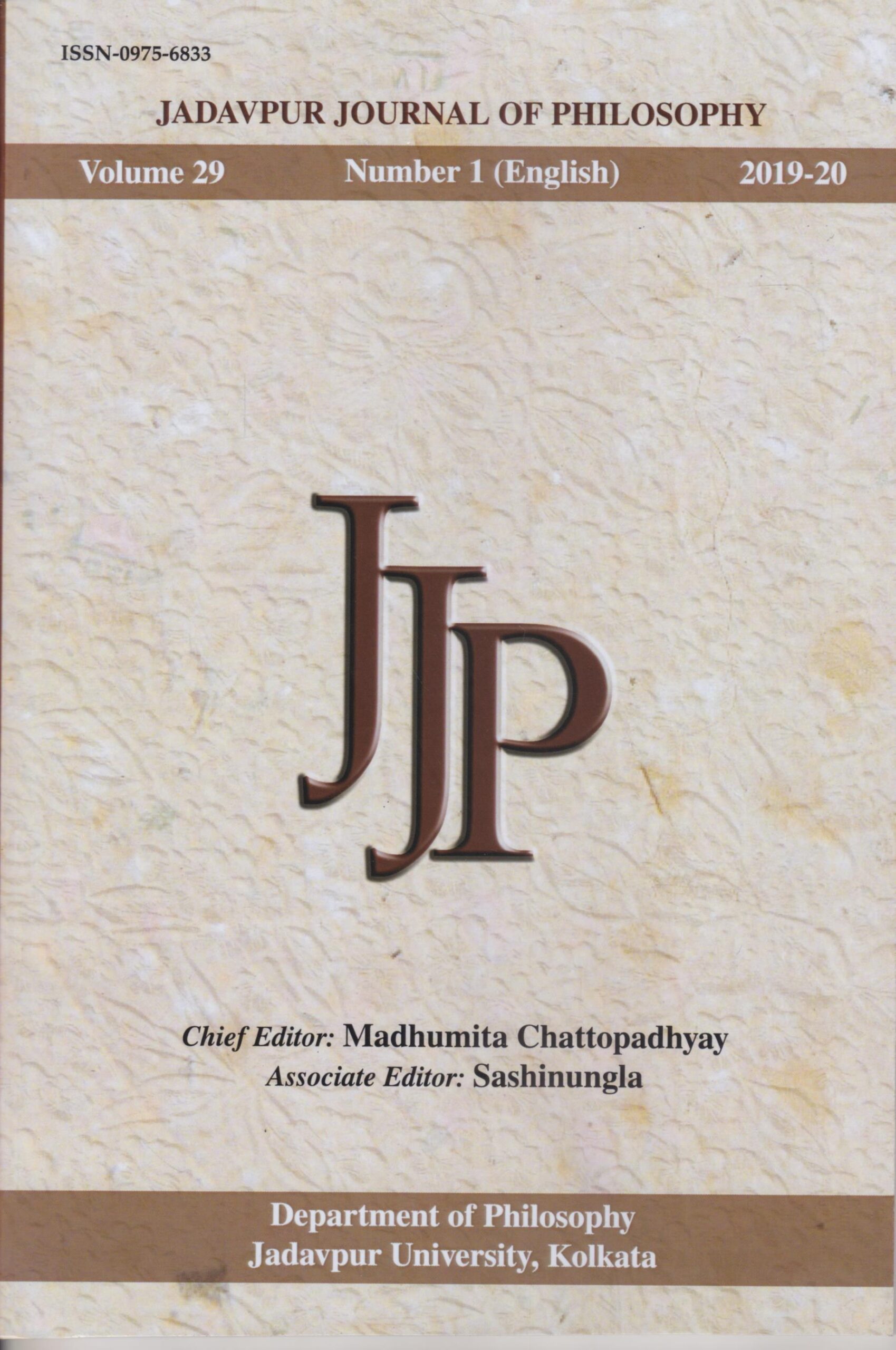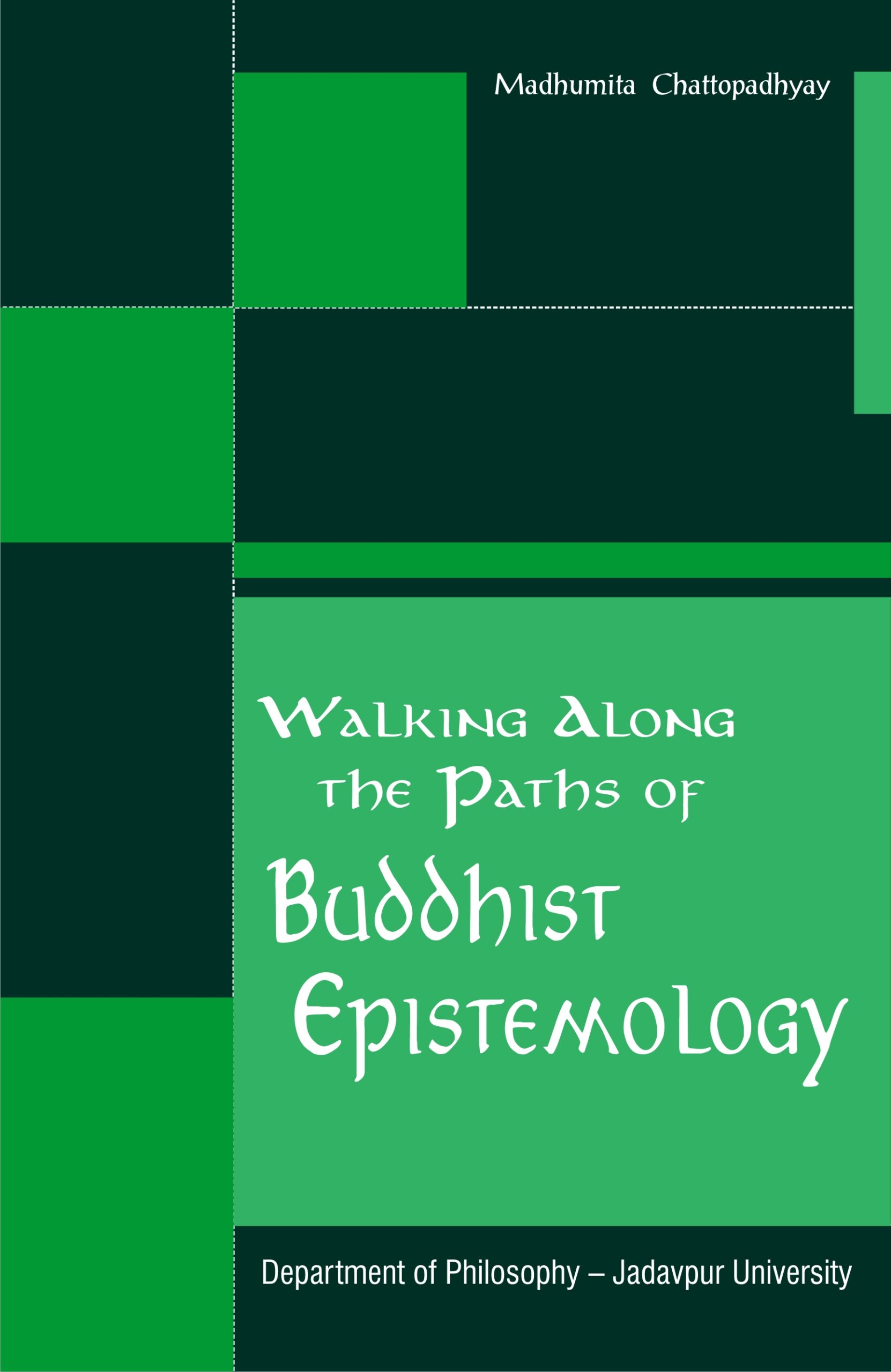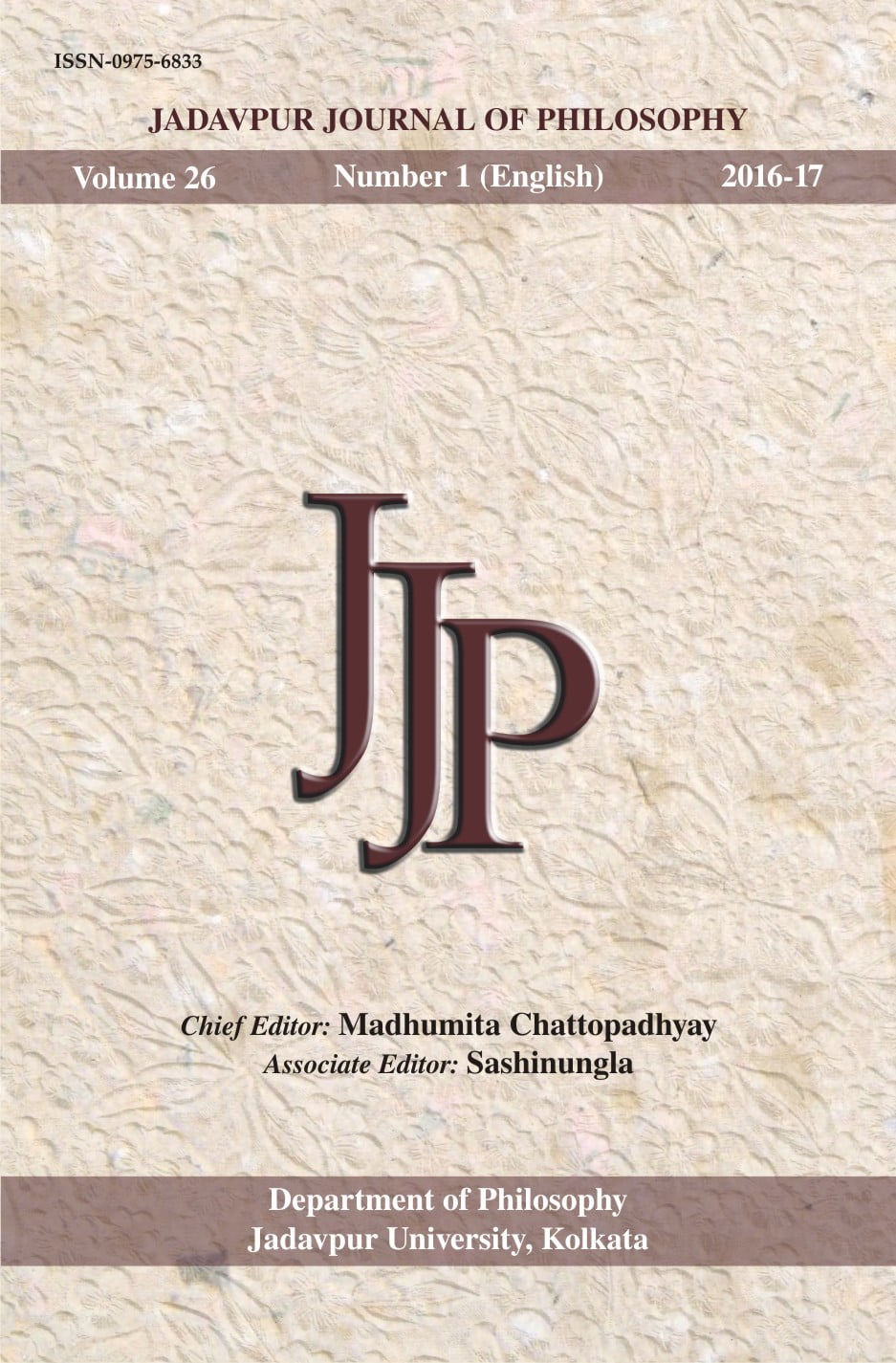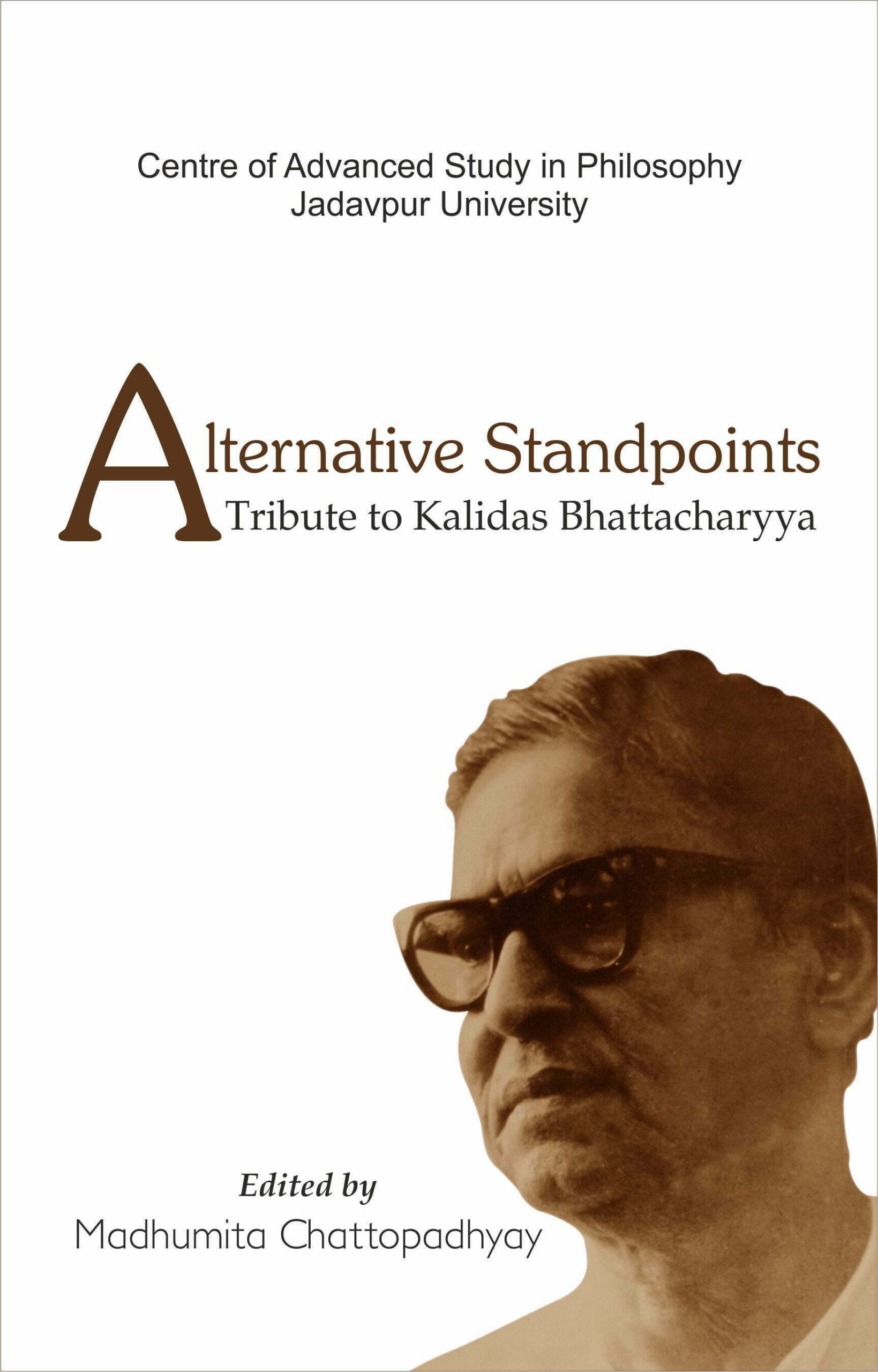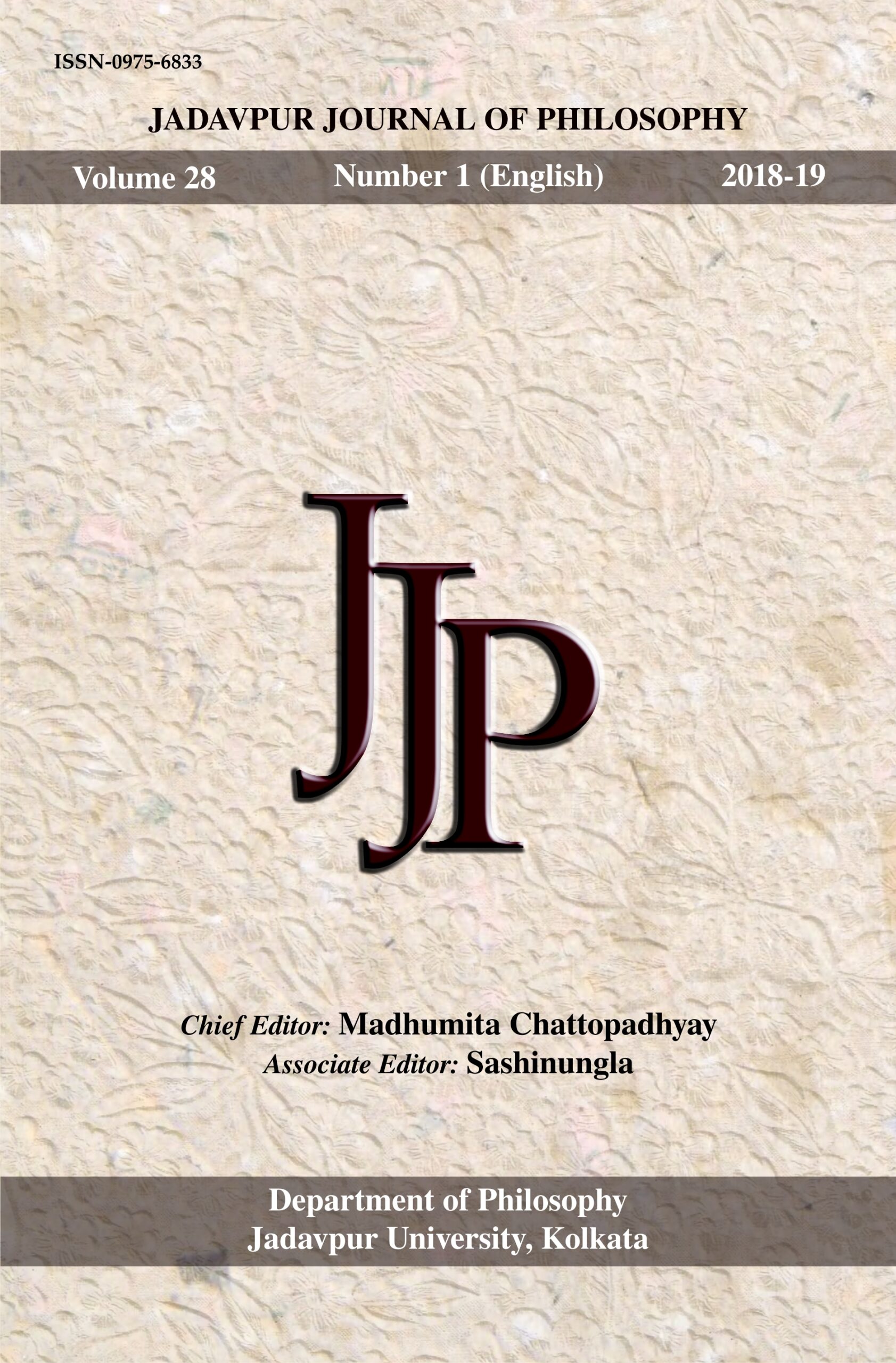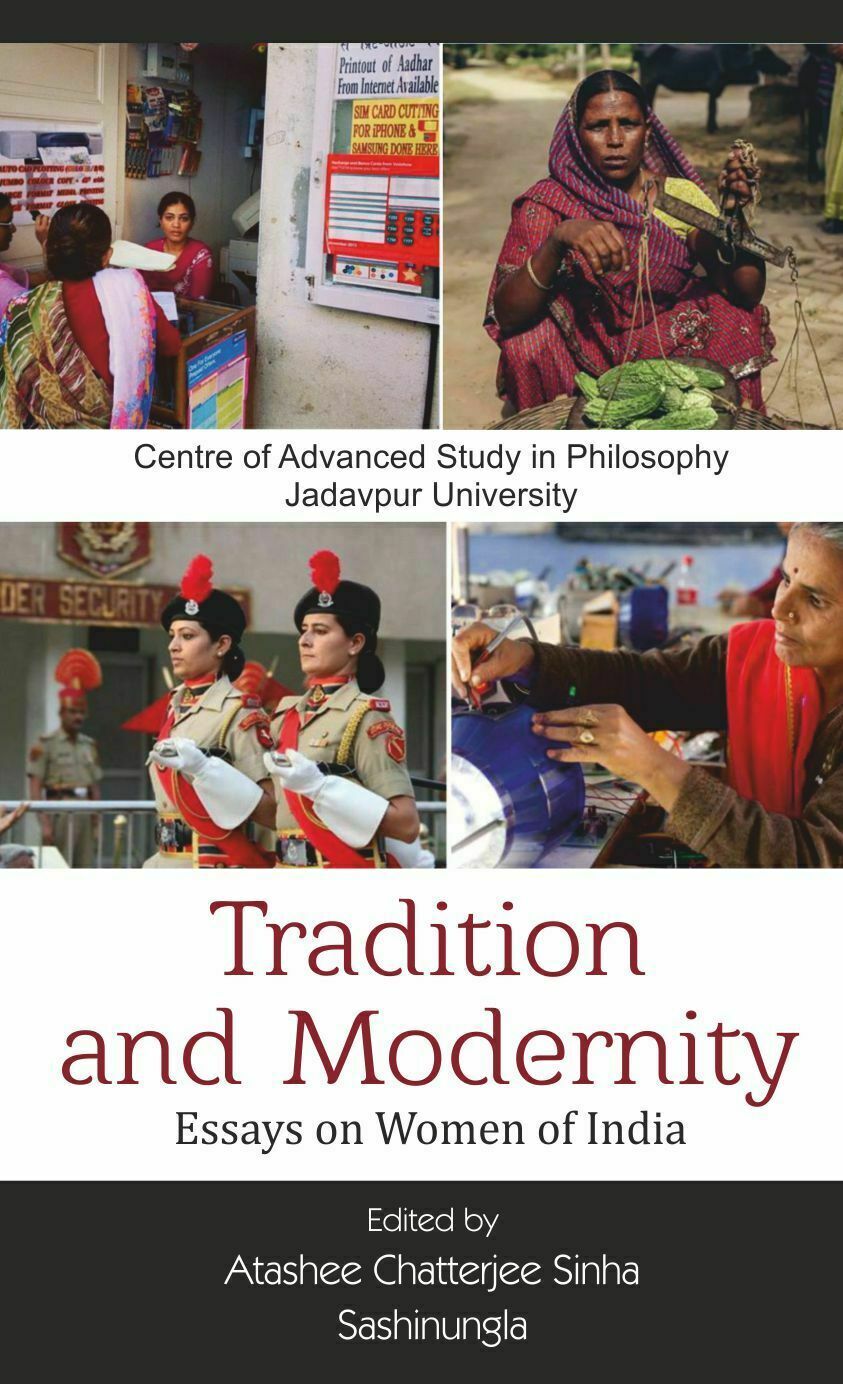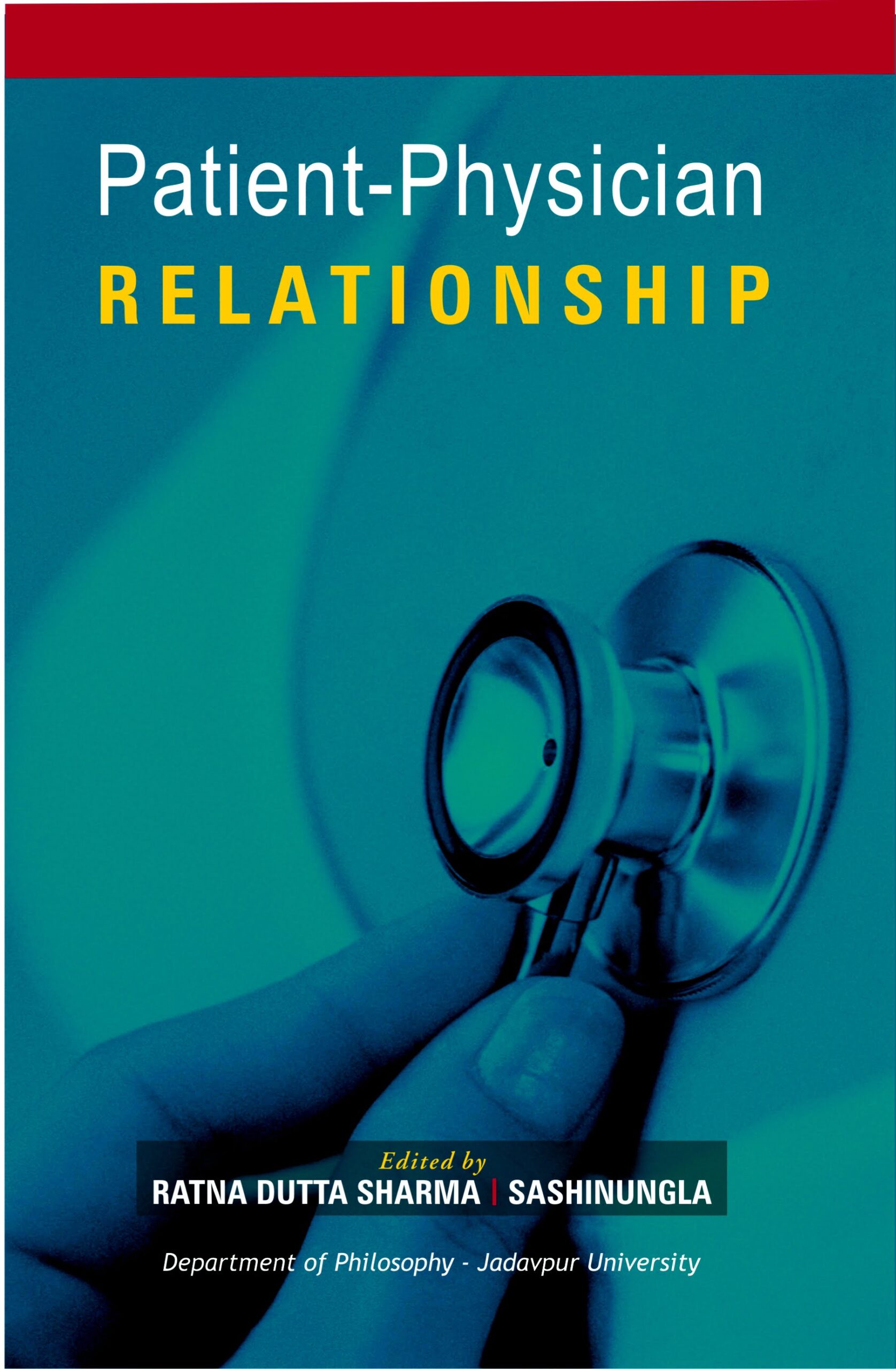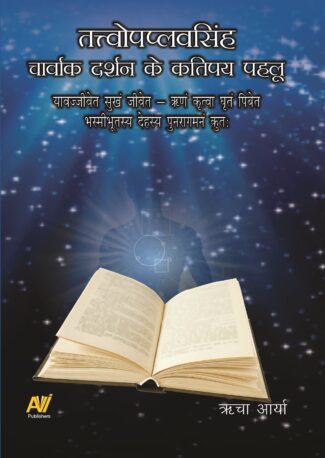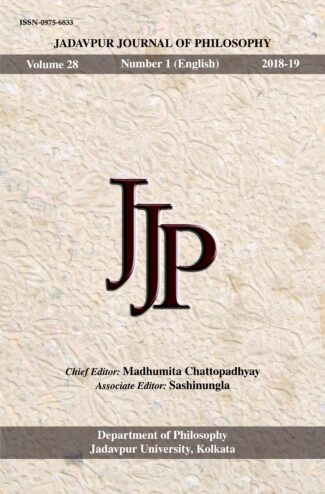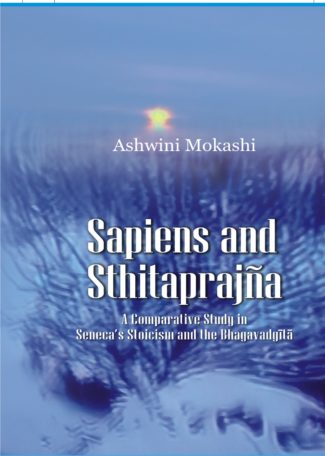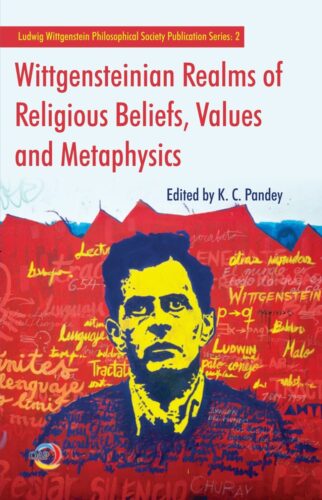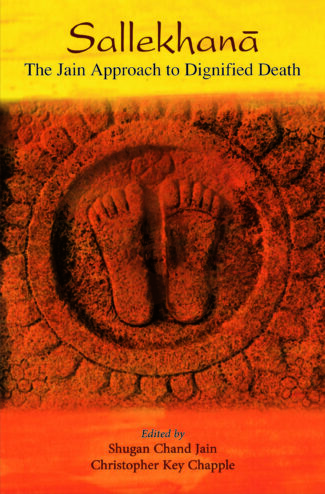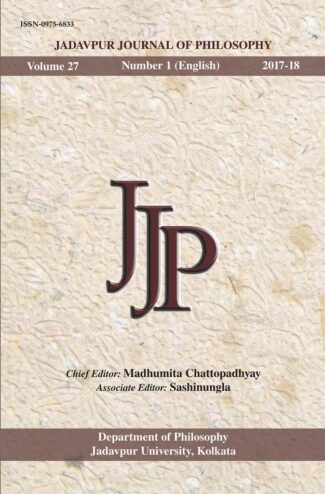

Jadavpur Journal No....
Jadavpur Journal No. 27
by: Madhumita Chattopadhyay , SashinunglaJadavpur Journal of Philosophy is a refereed, bi-issue journal, in English (No. 1) and Bengali (No. 2) published annually by the Department of Philosophy, Jadavpur University, Kolkata, India. The journal volume in Bengali is titled Darsan Biksa. The journal is devoted to the publication of original scholarly papers in any branch of philosophy. Its objective is to encourage contributions from scholars, dealing with specific philosophical problems connected with their respective fields of specialization.
₹300.00 Original price was: ₹300.00.₹270.00Current price is: ₹270.00.
ISBN: 9788100000786
Year Of Publication: 2018
Edition: 1st
Pages : 143p.
Language : English
Binding : Paperback
Publisher: Jadavpur University
Size: 23
Weight: 250
Jadavpur Journal of Philosophy is a refereed, bi-issue journal, in English (No. 1) and Bengali (No. 2) published annually by the Department of Philosophy, Jadavpur University, Kolkata, India. The journal volume in Bengali is titled Darsan Biksa. The journal is devoted to the publication of original scholarly papers in any branch of philosophy. Its objective is to encourage contributions from scholars, dealing with specific philosophical problems connected with their respective fields of specialization.
- Sale!Tattvopaplavasimha Carvaka darasana ke katipaya pahalu (???????????????? ??????? ????? ?? ????? ????) by: Richa Arya
₹795.00Original price was: ₹795.00.₹716.00Current price is: ₹716.00.Jayarashibhatta’s Tattvopaplavsimha (ca. 8th cent.) is considered to be an important work of the Caravaka (Charvak) philosophy. The Charvak philosophy rejects evidence other than the direct evidence, to the extent that it does not consider sky as an element in the five fundamental elements (earth, water, fire, air and sky). The manuscript of Tattvopaplavisimha was obtained from Patan (modern-day Patna) in 1926. It was published in the Oriental Series in 1940 and with an introduction in Hindi by Pandit Sukhlal Sanghvi in 1987. The historical work examines the definitions of the evidence as accepted by various arms of Indian philosophy. The present book reviews the refutation of various epistemological principles explained in Tattvopaplavsimha.जयराशिभट्ट कृत तत्त्वोपप्लवसिंह (आठवीं शताब्दी) चार्वाक दर्शन का ग्रन्थ माना जाता है। चार्वाक दर्शन प्रत्यक्ष प्रमाण के अतिरिक्त सभी प्रमाणों को अस्वीकार करता है, इसके साथ ही प्रत्यक्ष को ही एकमात्र प्रमाण मानने के कारण चार्वाक पंचतत्वों (पृथ्वी, जल, अग्नि, वायु एवं आकाश) में आकाश तत्त्व को नकारता है। तत्त्वोपप्लवसिंह ग्रन्थ की पाण्डुलिपि सन 1926 में पाटन से प्राप्त हुई। सन 1940 में ओरियंटल सीरीज में तथा 1987 में पंडित श्री सुखलाल जी सांघवी की हिंदी भूमिका के साथ प्रकाशित हुआ। यह ग्रन्थ वैतण्डिक पद्धति होने के कारण भारतीय दर्शन के विभिन्न सम्प्रदायों द्वारा स्वीकृत प्रमाणों की परिभाषाओँ और प्रमाण की परीक्षा करता है। प्रस्तुत पुस्तक में तत्त्वोपप्लवसिंह में व्याख्यायित विभिन्न ज्ञानमीमांसीय सिद्धांतों के खंडन की समीक्षा की गयी है।
- Sale!Jadavpur Journal of Philosophy by: Madhumita Chattopadhyay
₹300.00Original price was: ₹300.00.₹270.00Current price is: ₹270.00.This book proposes to take up the question of Universal Causation to examine thoroughly as how far it is right to regard Brahman as the Universal Cause and how far strakra himself lent his support to each of the inter-conflicting schools of Vednta. This book should, therefore, benefit all who are devoted to the philosophic teachings of Advaita Vednta and its preceptors.
- Sale!Sapiens and Sthitaprajna by: Ashwini A. Mokashi
₹800.00Original price was: ₹800.00.₹720.00Current price is: ₹720.00.Sapiens and Sthitaprajna studies the concept of a wise person in the Stoic Seneca and in the Bhagavadgita. Although the Gita and Seneca’s writings were composed at least two centuries apart and a continent apart, they have much in common in recommending a well-lived life. This book describes how in both a wise person is endowed with both virtue and wisdom, is moral, makes right judgements and takes responsibility for actions. A wise and virtuous person always enjoys happiness, as happiness consists in knowing that one has done the right thing at the right time.
Both Seneca and the Gita demand intellectual rigour and wisdom for leading a virtuous and effective life. They provide guidelines for how to become and be wise. Both systems demand a sage to be emotionally sound and devoid of passions. This leads to mental peace and balance, and ultimately tranquillity and happiness. While surveying these similarities, this study also finds differences in their ways of application of these ideas. The metaphysics of the Gita obliges the sage to practise meditation, while the Stoics require a sage to be a rational person committed to analysing and intellectualizing any situation.
This comparative study will be of interest to students of both Ancient Western and Ancient Indian Philosophy. Practitioners of Stoicism and followers of the Gita should find the presence of closely-related ideas in a very different tradition of interest while perhaps finding somewhat different prescriptions a spur to action. - Sale!Wittgensteinian Realms of Religious Beliefs, Values and Metaphysics by: K. C. Pandey
₹1,800.00Original price was: ₹1,800.00.₹1,620.00Current price is: ₹1,620.00.All that cannot be expressed in language, for early Wittgenstein, belong to the realm of Unsayable or Showable. Such a realm consists of religious beliefs, ethical values, aesthetics, metaphysics, solipsism, love, death among other aspects of life which language is incapable of depicting successfully. Later Wittgenstein did not insist on the inexpressibility of these realms as each of them has their own distinct form of life. In this background this anthology is an attempt to explore various facets of these aspects of Wittgensteinian philosophy through various elucidations and interpretations. It is classified into three sections, viz. “Religious Beliefs, Wittgensteinian Fideism, Religious Pluralism, and Cultural Debates”, “Absolute Value, Ethics, Aesthetics, Architecture” and “Subjectivism, Solipsism, Metaphysics, and Hermeneutics”. It aims at bringing out the current development in the field as found in the debates and discussions on Wittgensteinian philosophy in the contemporary philosophical world.
- Sale!Sallekhana by: Shugan Chand Jain, Christopher Key Chapple,
₹1,200.00Original price was: ₹1,200.00.₹1,080.00Current price is: ₹1,080.00.Jainism regards life to be eternal. Recognizing that the soul can never die, but merely takes a new body, a careful tradition welcoming death through intentional fasting developed more than two thousand years ago. A legal challenge Rajasthan was put forward in 2013, suggesting that this practice is harmful and coercive and targets women in particular. For a short while Sallekhanā, which means the “thinning of existence,” was declared illegal. In response to this controversy, three conferences were convened by the International School for Jain Studies to explore the legal, religious, and medical aspects of this practice. Experts discussed the long history of the practice, attested to in epigraphs throughout India; the ways in which fasting to death has become an acceptable practice in the Western world; and contemporary instances of its observance in India. This volume presents an interdisciplinary approach to thinking about the end of life, from biomedical, historical, religious, and legal perspectives.


